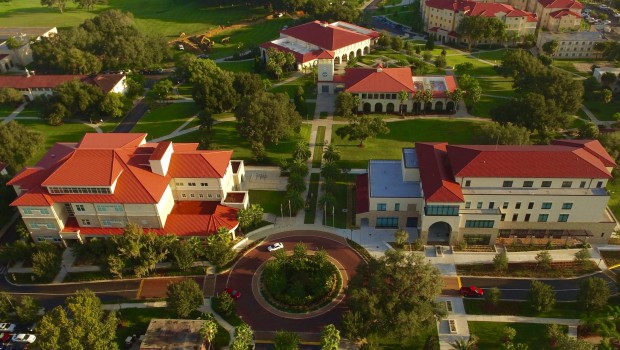Please read: Federal Drug and Alcohol Policy Notification
In accordance with applicable federal law requirements, Saint Leo University is sending this general notification of the university’s alcohol and illegal substances policies to all students, faculty, and staff. All recipients of this notice should familiarize themselves with the policies and resources applicable to their status within the university community. The policies and resources are listed below with links to the most current versions and relevant information on the internet.
Student Policies and Resources
Code of Conduct generally, and Section 4 Subsections B3, B17, B19, and Section 5, Subsection C, available at https://www.saintleo.edu/hubfs/Greek%20Life/Student%20Affairs/Code%20of%20Conduct.pdf?t=1536591961261
Legal Sanctions for Alcohol and Illicit Drug/Controlled Substance Offenses
Numerous federal, state, and local laws provide for a variety of legal sanctions and penalties for the unlawful possession or distribution of illicit drugs and alcohol. These sanctions include, but are not limited to, incarceration and monetary fines.
State of Florida statutes declare that it is unlawful for any person under 21 years of age to consume or possess alcoholic beverages. Consequently, no one under the legal drinking age may consume, distribute, or possess alcohol on university properties or as part of any university activity.
It is unlawful to sell, give, serve, or permit to be served alcoholic beverages to a person under 21 years of age. Maximum penalty for violations is one year in jail and a $1,000 fine. A second conviction is a felony punishable by five years in prison and a $5,000 fine.
Florida prohibits open containers of alcoholic beverages in motor vehicles. Many cities and counties regulate public consumption of alcohol by prohibiting consumption or possession of open containers of alcohol on streets, sidewalks, parking lots, or beaches. An open container is any bottle or can which has been opened, or any flask, cup, or glass that contains any amount of alcohol.
Lending your driver’s license or state identification card to a friend or using someone else’s in order to obtain alcohol or for any other reason is a crime punishable by 60 days in jail and a $500.00 fine. Both parties may have their driver’s licenses suspended for one year. (Fla. Stat. 322.051, 322.32, 322.27) Possession of any driver’s license or state identification card not produced lawfully by the appropriate governmental agency is a felony punishable by five years in prison and a $5,000.00 fine. (Fla Stat. 322.212)
The penalty for possession of illicit drugs (second-degree misdemeanor) is 60 days jail and a$500 fine. Penalties for trafficking (first-degree felony) range up to 30 years imprisonment and fines of $500,000.
The Federal Controlled Substances Act provides penalties of up to 15 years imprisonment and fines up to $25,000 for unlawful distribution or possession with intent to distribute narcotics. For unlawful possession of a controlled substance, a person is subject to up to one year of imprisonment and fines up to $5,000. Any person who unlawfully distributes a controlled substance to a person under 21 years of age may be punished by up to twice the term of imprisonment and fine otherwise authorized by law.
State laws and local ordinances also prohibit the unlawful possession or distribution of illicit drugs, controlled substances, and alcohol. Please refer to the criminal sanctions for your state and local area.
Florida Statute Section 562.11 – Under aged Possession of Alcohol [Note: sanctions may differ by state] You should know the following about Florida law, statute section 562.11 for under age 21 possession of alcohol:
- The crime is a second degree misdemeanor;
- If convicted of alcohol possession by anyone under the age of 21, you can receive a fine of up to $500, which does not include additional expenses for court costs or cost of prosecution;
- If convicted of under age 21 possession of alcohol, you can be sentenced to up to 60 days in jail or six months’ probation; and
- For any finding of guilt the trial judge MUST revoke your driver’s license for at least six months although the court is permitted to revoke your driver’s license for up to 12 months.
Note: The above bullet points are only for information only. State sanctions are subject to change by the Florida Legislature. Refer to your local and state sanctions accordingly.
Impact of Drug Convictions on Financial Aid, available at Section 4 Subsection B17 at https://www.saintleo.edu/hubfs/Greek%20Life/Student%20Affairs/Code%20of%20Conduct.pdf?t=1536591961261
Student Employees, see Section 2.2.1, Section 3.3.5, and Section 3.3.14.6, and Section 3.3.16 of the University Policy Manual at
https://portal.saintleo.edu/Documents/SLU-Master-Policy-Manual.pdf
Guide to Residence Living, Items No. 20 and No. 21, available at https://www.saintleo.edu/hubfs/Resource%20PDFs%20and%20DOCs/Residence%20Life/Guides%20to%20Residential%20Living.pdf
Alcohol and Illicit Drug/Controlled Substance Health Risks and Prevention Resources
The use, misuse, and abuse of alcohol and other drugs, both legal and illegal, can have serious consequences to health and well-being. Alcohol and other drug use can lead to psychological and/or physiological dependence and addiction. Information on specific health risks associated with alcohol and other drugs is summarized below and is available in more detail from the National Institutes of Health National Institute on Drug Abuse at: https://www.drugabuse.gov/frequently-asked-questions.
Illicit drugs all have some risks and health consequences—some more than others. Examples include increased heart rate and lung damage from marijuana; central nervous system disorders from cocaine, heroin, and hallucinogens; and liver, lung and kidney damage from inhalants. HIV infection also is spread widely among intravenous drug users. Even infrequent use of illicit drugs can result in physical afflictions, such as hangovers, cardiovascular damage, digestive problems, tremors, impaired sexual response, and injuries due to lost coordination. Other possible effects include reduced alertness and impaired performance at school or work, interpersonal conflicts, and financial difficulties. Dependence and addiction are constant threats to users of illicit substances. Regular abuse of these substances generally exposes users to criminal elements, which may lead to involvement in further criminal activities.
https://www.saintleo.edu/lions-care.
Alcohol and Other Drugs (AOD) & College Students – LionsCare website
https://www.saintleo.edu/lions-care.
Employee Policies and Resources
Section 2.2.1, Section 3.3.5, and Section 3.3.14.6, Section 3.3.16, and Section 3.6.7.1 of the University Policy Manual available to employees via the Saint Leo University Okta home page (login.saintleo.edu), under the Employees tab, “Saint Leo University Policies.”






